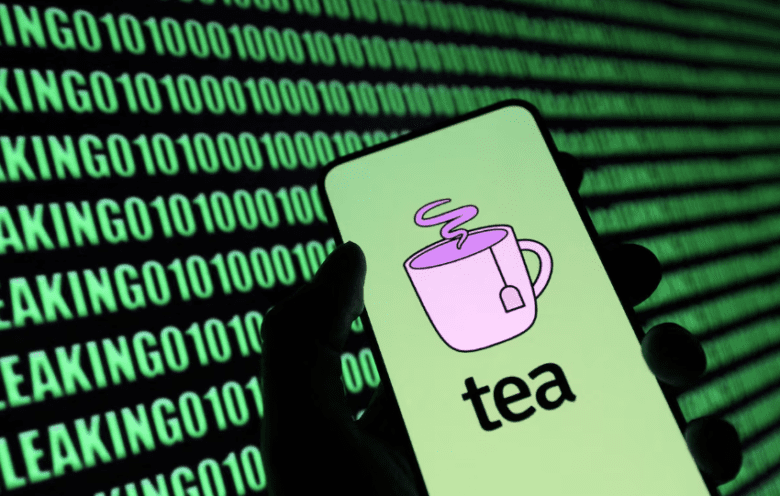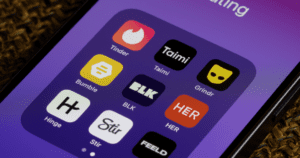App Tea Suspends Messaging After Hack: Dating Safety Tips, Breach Details, and Women-Only Dating Advice App Guide
The popular Tea dating safety app—a women-only platform that allows women to share information about potential partners, conduct background checks, and highlight both red flags and green flag qualities—has been hit by a massive breach. The app Tea suspended its messaging feature after an alarming cyberattack that exposed thousands of images, direct messages, and other personal information belonging to its more than a million users.
This incident has sparked conversations not only about the security of the Tea app but also about dating safety in general. Whether you’re using Tea or another dating app, what happened here should make you think twice about what you share online.
Timeline of the Tea Dating App Hack
The Tea dating advice app was first launched as a safety app to help women avoid potentially abusive behaviors when they date. But in July 2025, everything changed.
Key events:
- Late July 2025: Reports from tech publication 404 Media indicate that hackers gained access to images and direct messages.
- July 25: The company said it was investigating an incident that exposed thousands of images, including selfies and identity documents used for verification.
- July 27: Confirmation emerges that hackers steal not just photos but also posts and comments.
- July 29: News breaks that sensitive conversations around abortions and infidelity were among the stolen private material. These conversations around abortions and infidelity cause serious concern.
- July 30: Tea said it would suspend messaging after the hack, taking the app’s messaging feature offline “out of an abundance of caution.”
What makes this timeline particularly concerning for users is that some of the sensitive information dates back to before February 2024, meaning it had been stored far longer than tea’s privacy policy promised.

What Hackers Stole – More Than Just Images
The breach goes far beyond hacked images. According to cybersecurity experts, the stolen data includes:
- Selfies and identity documents—including photos that should have been deleted immediately after authentication, as per tea’s policy.
- Direct messages (DMs) containing sensitive topics, such as abortion, infidelity, and private material about relationships.
- Posts and comments from public and anonymous forums.
- Personal details such as phone numbers, meet-up locations, and email addresses.
Cybersecurity firm Immersive called this “deeply concerning for users” because combining personal details with sensitive information creates the perfect storm for blackmail, scams, and catfishing.
How Hackers Could Exploit the Stolen Information
When hackers steal data from a dating app, they can:
- Exposing embarrassing or sensitive conversations to pressure victims.
- Sell identity documents and personal details on the dark web for fraud.
- Use meet-up locations to stalk or harass victims.
- Create fake profiles to scam others (catfishing).
- Target users with phishing emails that appear to come from the app or its company.
Because the stolen direct messages include sensitive information about abortion and infidelity, the stakes are even higher. This isn’t just a security problem—it’s a privacy nightmare.
Company Response – Suspending Messaging After Hack
Tea said it was suspending direct messaging after learning that DMs were accessed as part of the breach. The company said this was done “out of an abundance of caution” and promised enhancements soon to security.
The tea dating advice platform also pledged to offer identity protection services to impacted users, including:
- Credit monitoring
- Fraud alerts
- Identity theft insurance
However, critics argue that tea’s promise to protect privacy fell short. The fact that some identity documents weren’t deleted immediately after authentication is a direct violation of its policies.

Why This Matters for All Dating App Users
Even if you’re not on Tea, this incident is a red flag for anyone using a dating app. Apps that allow women to share information and avoid red flags can still have security vulnerabilities.
This breach also shows that even apps marketed as a safety app aren’t immune to cyberattack. Users must remain cautious about sharing sensitive or personal details—especially when an app stores data indefinitely.
Expert Cybersecurity Advice for Affected Users
Immediate Steps After a Safety App Data Breach
- Change your passwords for the Tea app and any other account using the same password.
- Enable two-factor authentication for better security.
- Accept any identity protection services the company said they will offer.
- Monitor your credit and financial accounts for suspicious activity.
- Avoid clicking on suspicious links—especially if they appear to be from tea’s app.
Long-Term Dating Safety Tips to Protect Images and Messages
- Never share sensitive photos or personal information in direct messages on a dating app.
- Avoid uploading identity documents unless required, and delete them after use.
- Use privacy settings to control who can see your profile.
- Be cautious when meeting new people—share meet-up locations only with trusted friends.
Lessons from Other Dating App Hacks
Tea isn’t the first dating app to experience a major breach. Past incidents include:
- Ashley Madison: Hackers stole personal information from millions, leading to public exposure of affairs.
- OkCupid: Cybersecurity researchers found vulnerabilities that could expose user data.
These examples show that cybersecurity is not just a technical issue—it’s about protecting users from life-altering consequences.
The Bigger Picture – Cybersecurity in the Online Dating World
The Tea dating case reveals a lack of regulation in the dating safety sector. While industries like banking have strict security rules, dating advice app providers often face little oversight.
Experts suggest:
- Stricter laws require apps to delete unused personal information promptly.
- Mandatory security audits for platforms with more than a million users.
- Better transparency about what data is stored and for how long.
Until then, it’s up to users to be proactive about their privacy.
Conclusion – Staying Safe After the Tea Dating App Cyberattack
The Tea app hack is a wake-up call. The company said it will make security enhancements soon, but users should not wait to take precautions.
If you’re on any dating app, remember:
- Think before you send any message that could expose you if stolen.
- Limit the amount of personal information you share online.
- Understand that even a safety app can fail if hackers steal data.
When it comes to dating safety in the digital age, trust is earned—but once lost, it’s nearly impossible to regain.



